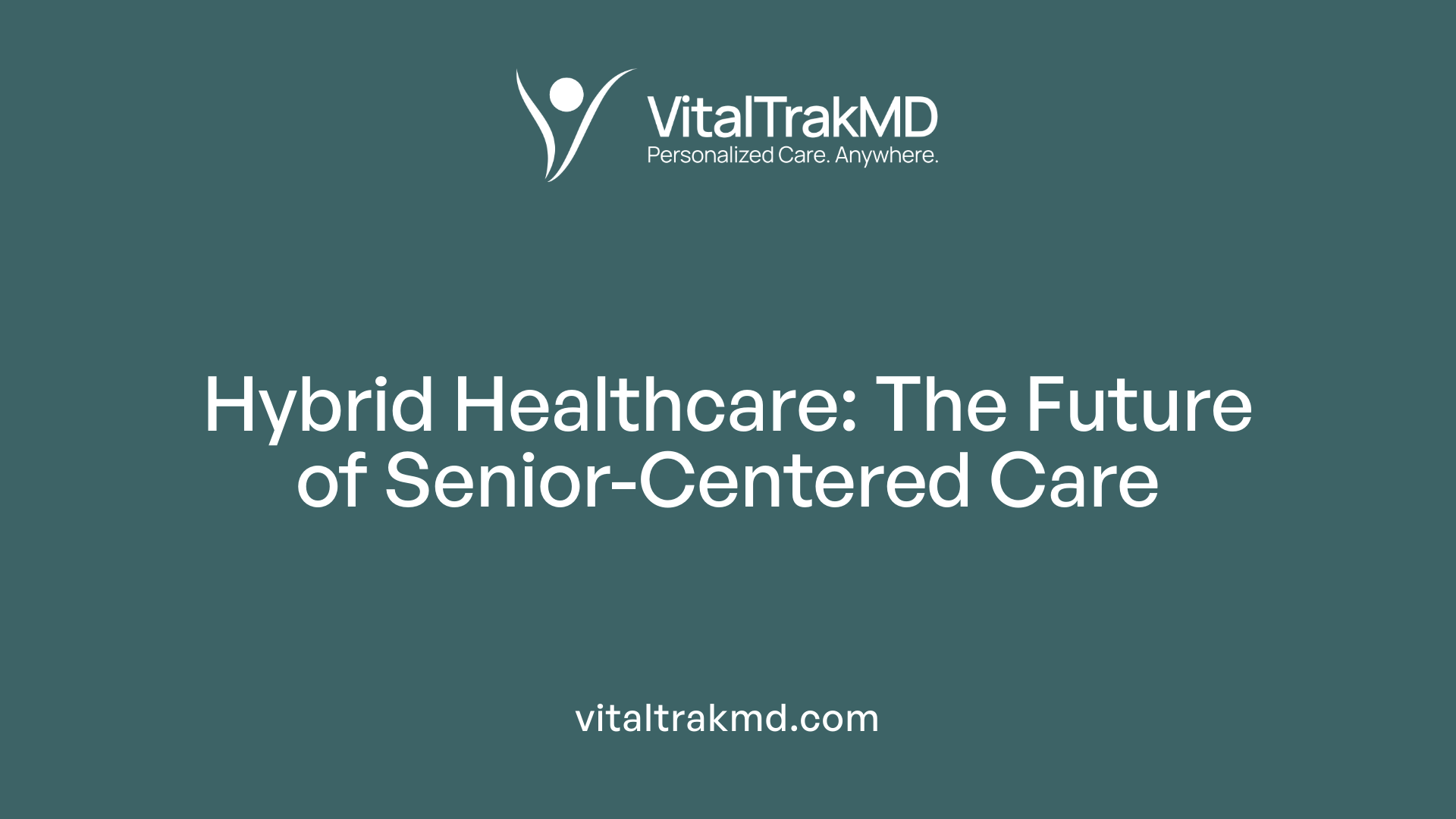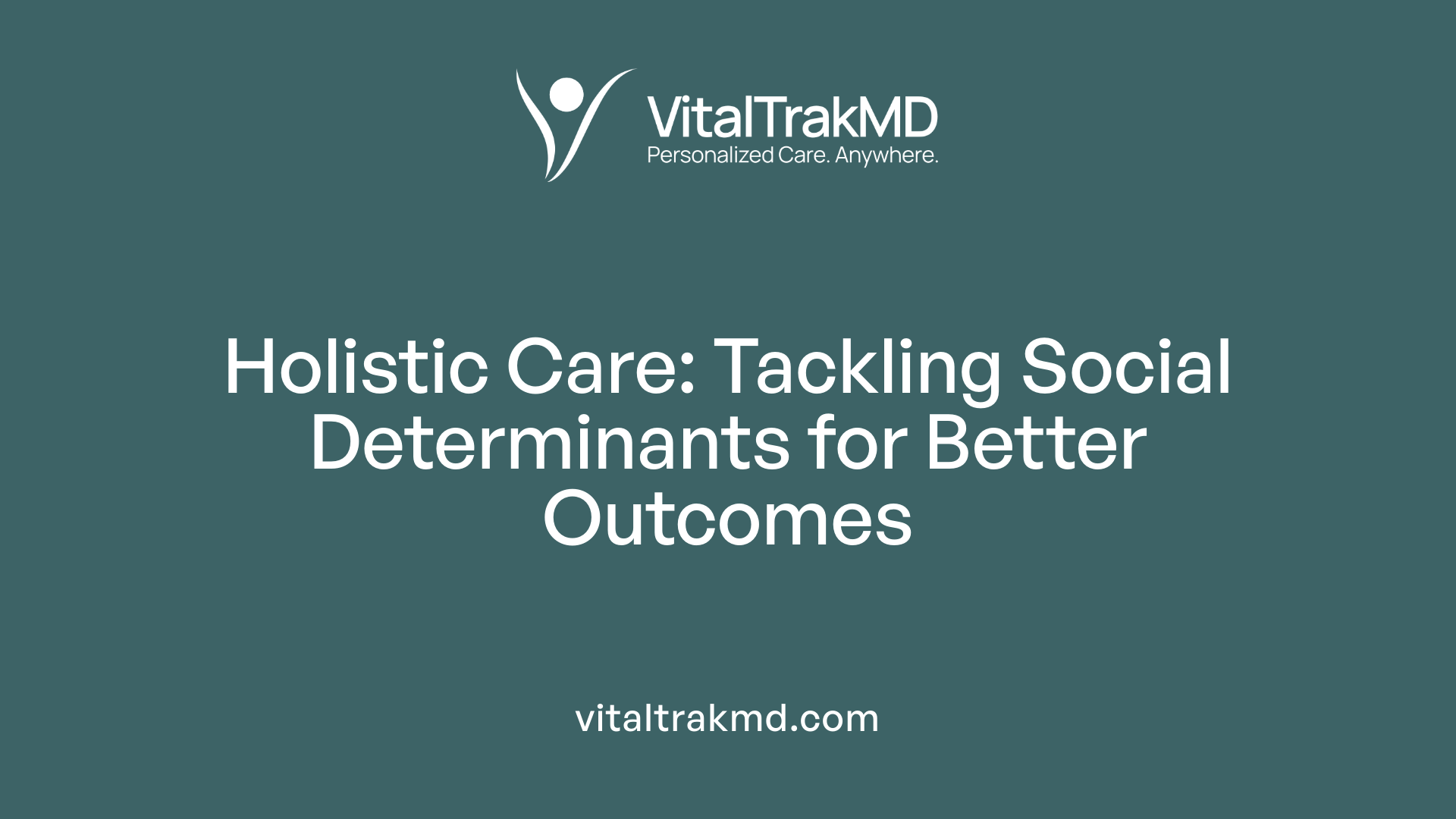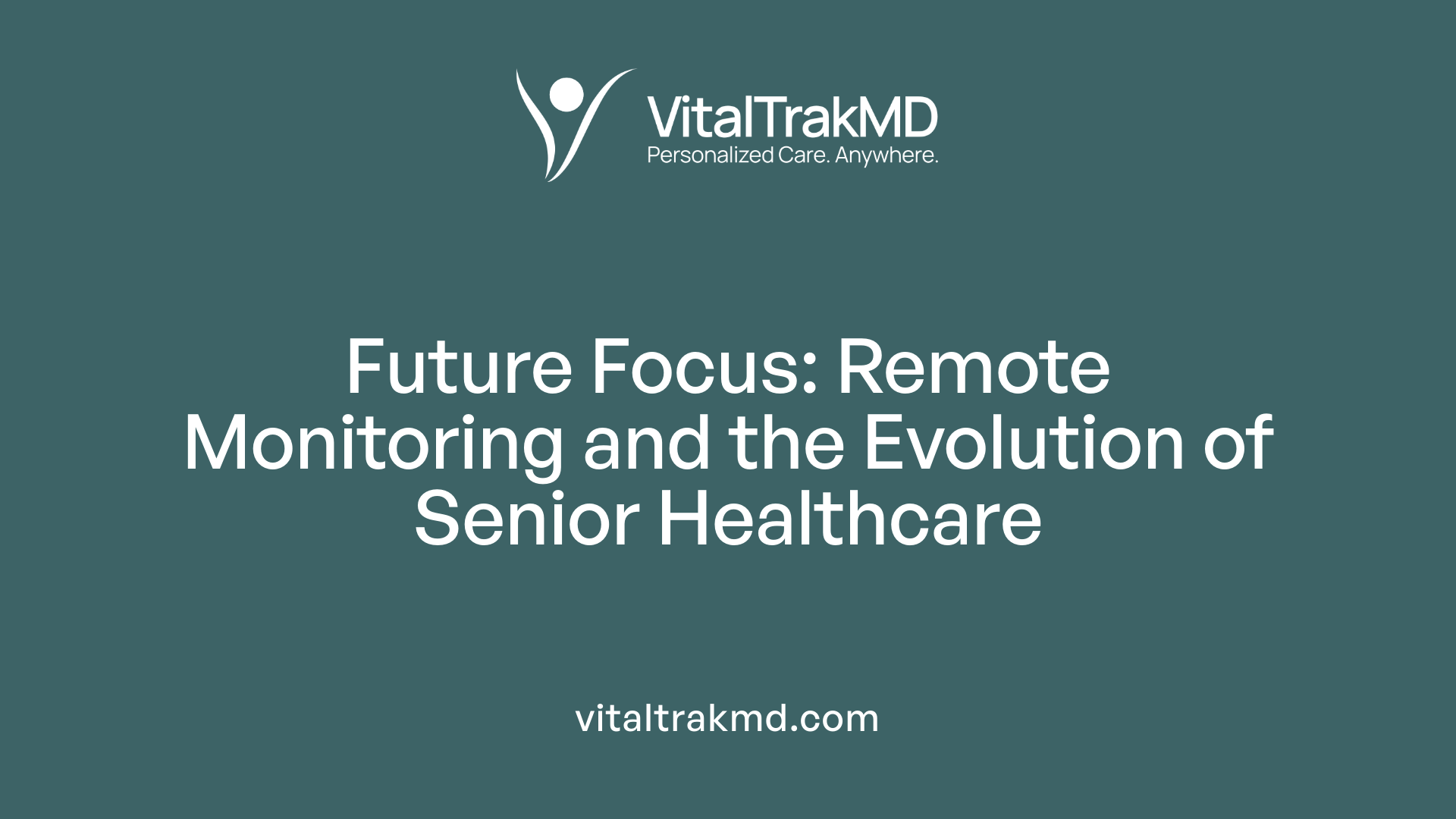How Hybrid Healthcare Helps Seniors Build Confidence in Managing Multiple Conditions

Bridging the Gap in Senior Healthcare
Seniors managing multiple chronic conditions often face complex healthcare challenges that impact their confidence and quality of life. Hybrid healthcare—combining virtual and in-person services—offers innovative solutions to improve care coordination, increase accessibility, and empower seniors to take active roles in managing their health. This article explores how hybrid healthcare models advance chronic care management, support wellness and behavioral health, and integrate social and medical services to build confidence among older adults dealing with multiple conditions.
Understanding the Complexity of Multiple Chronic Conditions in Seniors

What is the prevalence and impact of multiple chronic conditions (MCC) among seniors?
Multiple chronic conditions affect a significant portion of the senior population, with those living with MCC accounting for a dominant share of healthcare resource use. They are responsible for 64% of all clinician visits, 70% of inpatient stays, 83% of prescriptions, and 71% of healthcare spending. This reflects the immense impact MCC has on both individuals and the healthcare system.
How does MCC affect healthcare utilization and costs?
Seniors with MCC often require more frequent medical attention, leading to increased hospital readmissions and higher healthcare costs. Nearly all hospital readmissions among Medicare beneficiaries occur in this group. Effective chronic care management programs, which include continuous monitoring and virtual care options, have been shown to reduce hospitalizations and emergency visits, resulting in average cost savings of $714 per person.
What challenges do racial/ethnic minorities and disadvantaged groups face in MCC development and severity?
Racial and ethnic minorities, along with socioeconomically disadvantaged individuals, tend to develop multiple chronic conditions earlier and experience more severe health issues. These disparities emphasize the critical need for health equity-focused care programs that address social determinants of health to improve outcomes for these vulnerable populations.
Why are specialized care programs important for seniors with MCC?
Managing MCC in seniors requires patient-centered, integrated care that breaks down fragmented approaches. Specialized programs leverage telehealth, remote patient monitoring, and comprehensive care coordination to better manage complex treatment regimens. Using technologies such as blood pressure cuffs and glucose monitors allows early detection of complications, supporting proactive interventions that improve seniors’ health and independence.
What makes managing multiple chronic conditions challenging for seniors?
Seniors with multiple chronic conditions represent a disproportionate share of healthcare use and costs, often facing complex regimens and higher risks of hospital readmissions. Vulnerable populations experience these challenges more intensely, underscoring the need for coordinated, specialized, and equitable care programs tailored to seniors’ unique health profiles and social contexts.
The Rise of Hybrid Healthcare: Combining Virtual and In-Person Care

Acceleration of Telehealth During the COVID-19 Pandemic
The COVID-19 crisis led to an unprecedented surge in telehealth, with virtual visits increasing 78-fold in the early months. This rapid adoption showcased the potential of virtual platforms to deliver behavioral health services when in-person visits were limited.
Effectiveness of Teletherapy Compared to In-Person Visits
Research confirms that teletherapy sessions generally provide outcomes comparable to face-to-face care. However, certain populations, such as those with specific mental health conditions, may benefit more from in-person interactions. This highlights the need for flexibility and personalized treatment approaches.
Benefits of Hybrid Models in Addressing Provider Shortages and Burnout
Hybrid healthcare blends virtual and in-person care to enhance access, especially in communities with mental health provider shortages. This model also helps reduce provider burnout by improving scheduling flexibility and care efficiency, enabling providers to better meet increased demand.
Personalization of Behavioral Health Treatment Strategies
Organizations like the National Alliance on Mental Illness emphasize that treatment must be tailored to individual needs. Hybrid models make this possible by offering both virtual and in-person options, ensuring that patients receive the most suitable care modality.
How Has Hybrid Healthcare Evolved to Meet Seniors' Needs?
The pandemic accelerated virtual care, dramatically increasing access for seniors who often face mobility or geographic barriers. Hybrid healthcare supports seniors by combining the convenience of virtual consultations with essential in-person visits, improving coordination and personalization of care. This approach also reduces wait times and helps manage provider workload, ultimately enhancing overall treatment quality for seniors.
Chronic Care Management Programs and Their Role in Empowering Seniors
How do chronic care management programs support seniors in managing multiple conditions?
Chronic care management programs play a crucial role in helping seniors handle two or more chronic conditions such as diabetes, hypertension, or heart disease. These programs offer continuous medical services that focus on coordinated care, ensuring that seniors receive support tailored to their complex health needs.
Medicare coverage for virtual and non-face-to-face services
Medicare recognizes the importance of these programs and supports seniors by covering non-face-to-face services and virtual consultations. This coverage enhances access to care by enabling seniors to receive timely medical advice and follow-up without always needing in-person visits.
Remote Patient Monitoring (RPM) devices and benefits
One vital tool in chronic care management is Remote Patient Monitoring (RPM), which uses devices like blood pressure cuffs, glucose monitors, and weight scales. These devices provide real-time health data to providers, facilitating early detection of potential complications and reducing hospitalizations. RPM empowers seniors to actively participate in managing their health from home.
Evidence on reduced hospitalizations and improved medication adherence
Research shows that seniors engaged in chronic care management programs have fewer hospitalizations and emergency room visits. They also exhibit better adherence to prescribed medications, which is essential for managing chronic illnesses effectively. These programs not only help maintain better overall health but also support seniors in preserving their independence.
| Aspect | Description | Benefit to Seniors |
|---|---|---|
| Continuous Care | Coordinated management of multiple chronic conditions | Improved health outcomes |
| Medicare Coverage | Support for virtual and non-face-to-face services | Greater accessibility to care |
| Remote Patient Monitoring | Devices track key health metrics and enable early interventions | Reduces complications and hospital stays |
| Outcomes | Fewer hospitalizations, ER visits, and improved medication adherence | Enhanced quality of life and independence |
Integrating Mental Health and Behavioral Therapy into Hybrid Care

What role does behavioral therapy play within hybrid healthcare models?
Behavioral therapy is essential in helping seniors manage chronic diseases and maintain healthier weights by targeting the psychological and behavioral factors behind unhealthy habits. By addressing issues such as diet, exercise adherence, and stress management, behavioral therapy supports sustainable lifestyle changes crucial for chronic disease control.
How does telehealth reduce barriers to mental health care?
Telehealth expands access to behavioral therapy by overcoming geographic, physical, and stigma-related barriers. Virtual visits enable seniors, including those in underserved or rural areas, to connect with mental health providers more easily, reducing long waitlists and provider burnout caused by increased demand.
Why is personalized treatment and ongoing support important?
The National Alliance on Mental Illness highlights that mental health care must be tailored to individual needs. Some conditions or populations benefit more from in-person care, making hybrid models — which combine in-person and virtual sessions — uniquely well suited to personalized treatment. Ongoing behavioral support through both platforms is vital to maintaining health gains.
How do combined in-person and virtual approaches benefit behavioral health?
Hybrid healthcare models blend the strengths of teletherapy and face-to-face visits to create efficient and flexible treatment. This approach improves care coordination, allowing physical and mental health providers to collaborate virtually, while also accommodating patient preferences and clinical needs. Such integration enhances overall care quality, reduces stigma, and supports whole-person health.
| Aspect | Benefit in Hybrid Care | Additional Notes |
|---|---|---|
| Behavioral Therapy | Helps manage lifestyle factors for chronic disease | Included in many Medicare chronic care programs |
| Telehealth | Increases access and reduces barriers | Critical for underserved populations |
| Personalized Treatment | Tailors care to individual needs | Balances virtual and in-person visits |
| Combined Care Approaches | Enhances care coordination and flexibility | Supports integration of mental and physical care |
Wellness Programs: Supporting Physical Health and Preventative Care for Seniors
How can wellness programs improve overall health for seniors with multiple conditions?
Wellness programs play a vital role in promoting healthier lifestyles for seniors managing multiple chronic conditions (MCC). These programs often include nutrition counseling and encourage increased physical activity, which are crucial to managing diseases like diabetes, hypertension, and heart disease. By focusing on preventive care through screenings and vaccinations, such as flu shots and pre-teen immunizations, wellness programs help detect potential health issues early, reducing the likelihood of severe complications.
Health Literacy and Self-Care Education Resources
To support seniors in managing their health effectively, wellness programs provide access to education tools and resources. Platforms like the Krames Staywell Health Library and various digital health education services offer information that enhances health literacy and encourages proactive self-care. This empowerment leads seniors to better understand their conditions and engage more actively with their treatment plans.
Impact on Reduced Healthcare Costs and Quality of Life
Active participation in wellness programs has been linked to fewer hospitalizations and emergency room visits, translating into an average cost savings of approximately $714 per person. These programs also contribute to better medication adherence and sustained independence among seniors. Overall, they improve not only quality of life but also reduce the burden on healthcare systems by preventing unnecessary acute care.
Wellness programs thus serve as an integrated support system, focusing on nutrition, physical activity, preventive screenings, and education to enhance the health outcomes and wellbeing of seniors living with multiple chronic conditions.
Addressing Social Determinants of Health Through Hybrid Care

How do hybrid healthcare models incorporate social determinants to improve senior care?
Hybrid healthcare models play a crucial role in addressing the social determinants of health by integrating medical care with essential social services. Programs like Community Connect assist seniors by linking them to vital resources such as food assistance, shelter, and legal aid. These services tackle non-medical factors that strongly influence health outcomes and quality of life.
This holistic approach ensures that care is not fragmented but coordinated across multiple service providers. By bringing together physical, mental, and social care through virtual platforms and in-person visits, hybrid care models provide seniors with comprehensive support tailored to their needs.
Reducing healthcare fragmentation improves communication among providers, streamlines care management, and fosters patient confidence. Seniors are better equipped to manage chronic conditions and navigate the healthcare system when social challenges are addressed alongside clinical care.
Ultimately, hybrid care's integration of social determinants strengthens overall well-being and promotes equitable, person-centered care for vulnerable populations, highlighting the value of a whole-person approach in contemporary healthcare delivery.
The Vital Role of Ongoing Support in Chronic Care and Weight Management
How important is ongoing support in care programs for weight loss and chronic condition management?
Ongoing support is essential for individuals managing chronic conditions and pursuing weight loss because sustaining health improvements is typically more challenging than the initial progress. Long-term success depends on continuous guidance that addresses not only physical but also emotional and behavioral challenges.
Challenges of sustaining weight loss and health habits
Maintaining weight loss and healthy habits requires persistent motivation and lifestyle adjustments. Without ongoing support, setbacks and lapses become more likely due to the psychological and environmental barriers faced by individuals, especially seniors managing multiple chronic conditions.
Behavioral strategies to maintain motivation
Behavioral strategies such as setting realistic goals, using self-monitoring tools, and reinforcing positive behaviors can help keep motivation high. Incorporating remote monitoring technologies and virtual care options empowers individuals to remain engaged in their care routines.
Importance of support networks and professional guidance in long-term success
Support networks, including family, peer groups, and healthcare providers, play integral roles by providing encouragement, accountability, and personalized interventions. Hybrid care models combine virtual and in-person interactions, facilitating access to professional guidance and peer support while adapting to individuals’ needs and circumstances.
Together, these factors make ongoing support a cornerstone of effective chronic care and weight management programs, improving health outcomes and quality of life, particularly among seniors and those with complex health needs.
Looking Ahead: The Future of Senior Healthcare and Remote Monitoring Technologies

What does the future hold for seniors using hybrid healthcare and technology?
Remote Patient Monitoring (RPM) devices, such as blood pressure cuffs and glucose monitors, are set to play an expanding role in senior healthcare. The RPM market is projected to grow at a compound annual growth rate (CAGR) of 18.6% from 2024 to 2030, reflecting increasing adoption of these tools. This growth highlights their rising importance in enabling continuous, personalized management of multiple chronic conditions (MCC) common among older adults.
Growth projections of Remote Patient Monitoring (RPM) technologies
RPM technologies are evolving rapidly, providing more accessible and accurate health data. Seniors using RPM benefit from timely health insights, allowing providers to detect early signs of complications and intervene proactively. This helps prevent hospitalizations and emergency room visits, reducing the physical and financial burdens of chronic diseases.
Potential to enhance early intervention and personalized care
When integrated into hybrid healthcare models, combining in-person and virtual care, RPM empowers seamless communication between patients and providers. Data from remote devices supports tailored treatment plans and ongoing adjustments, making care more responsive to individual needs. This approach ensures that seniors receive coordinated support for both physical and mental health aspects.
Cost savings and improved health outcomes from RPM adoption
Evidence shows that chronic care management programs utilizing RPM can save an average of $714 per person by decreasing emergency visits. Seniors enrolled in such programs experience better medication adherence, fewer hospitalizations, and overall improved health and independence.
Integrating technology within hybrid healthcare frameworks
The future of senior care lies in hybrid healthcare models that leverage RPM and telehealth to bridge gaps in access and efficiency. This integration promotes a whole-person approach that addresses medical, behavioral, and social determinants of health. By supporting virtual coordination among care teams, RPM technologies enhance care quality while helping to mitigate provider burnout.
| Aspect | Benefits | Impact on Seniors |
|---|---|---|
| RPM Growth | Market CAGR 18.6% through 2030 | More devices available for continuous monitoring |
| Early Intervention | Timely data enables proactive care | Reduced hospital and ER visits |
| Personalized Care | Tailored treatment with hybrid healthcare integration | Greater care responsiveness and independence |
| Cost Savings | Average $714 saved per person | Lower healthcare costs and improved outcomes |
| Technology in Hybrid Models | Combines virtual and in-person care effectively | Enhanced coordination, addressing physical and mental health needs |
Empowering Seniors Through Innovation and Integration
Hybrid healthcare represents a transformative approach in managing multiple chronic conditions among seniors by blending virtual and in-person care. This model enhances accessibility, promotes personalized treatment plans, and integrates physical, mental, and social health support. Chronic care management programs, wellness initiatives, and remote monitoring technologies contribute to reducing hospitalizations, improving medication adherence, and sustaining long-term health improvements. Importantly, the incorporation of behavioral therapy and continuous support addresses the psychological aspects of managing complex health needs. Looking ahead, the expansion of remote patient monitoring and hybrid care frameworks promises to further empower seniors, building their confidence and fostering independence as they navigate the challenges of multiple health conditions.
References
- Benefits of a Hybrid Healthcare Model
- No-Cost Member Health & Wellness Programs | California
- Transforming care for people with multiple chronic conditions
- Chronic Care Management Program for Seniors
- Choosing a Safe & Successful Weight-loss Program - NIDDK
- 6 Benefits of Employee Wellness Programs
- Do Wellness Programs Work?
- Maintaining Weight Loss
Recent articles
Want to Feel Better and Live Healthier?
Join hundreds of patients taking control of their health with personalized care that fits their life – not the other way around.
Rated 4.8/5 by 32+ customers







